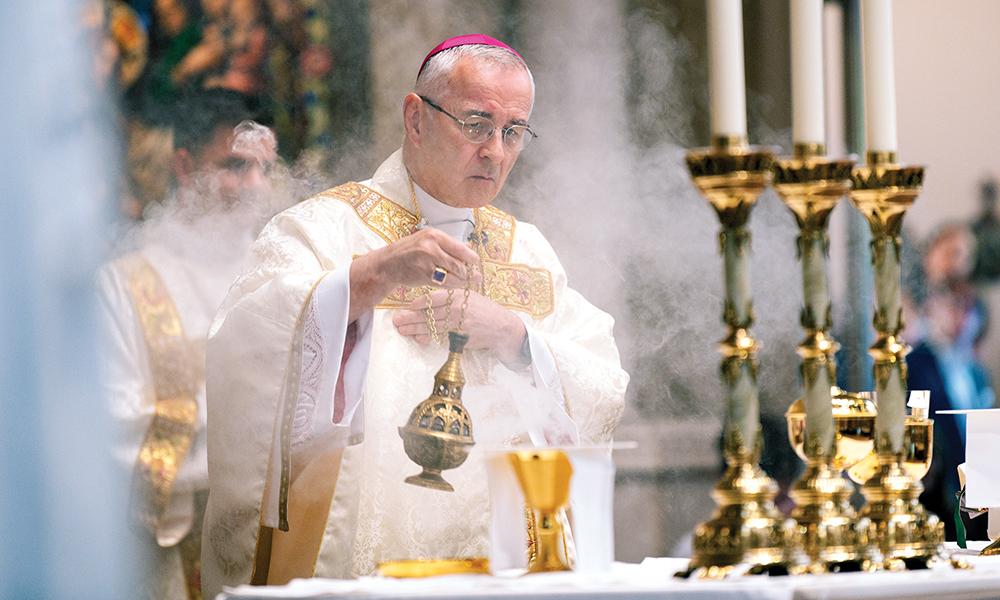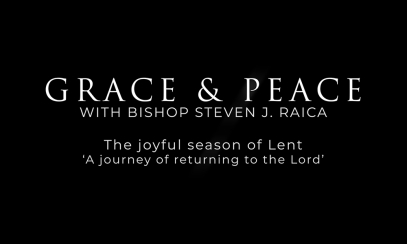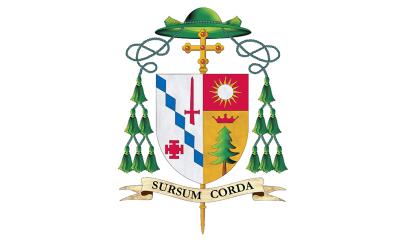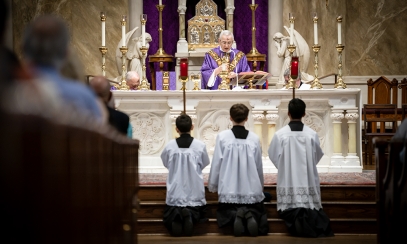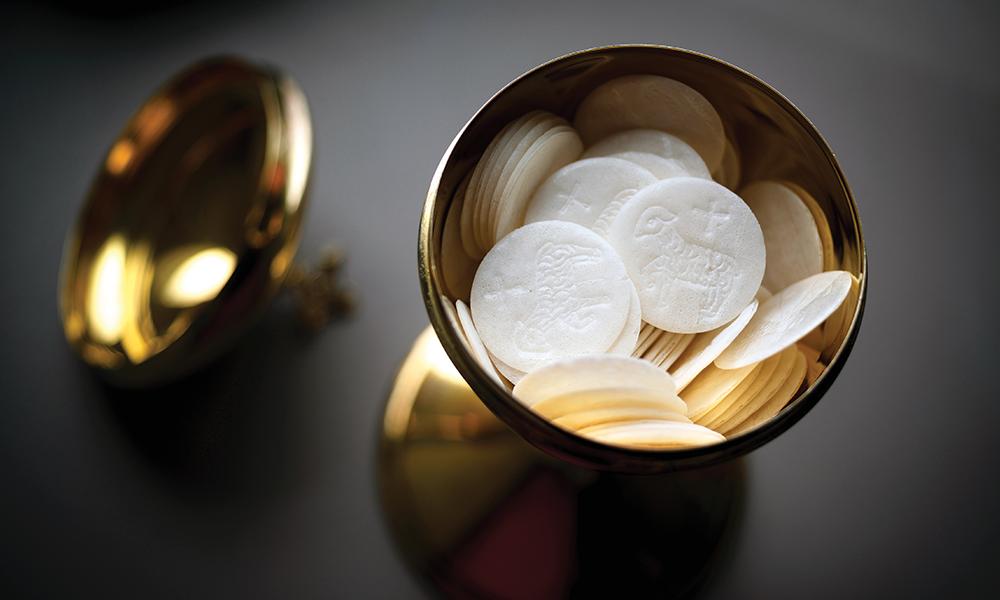
More than a mere token or memory
My sisters and brothers,
One of the greatest memories I have as a child was when I received my First Holy Communion. Even in our small village in Michigan’s Upper Peninsula, we had an exceptionally large class. In preparation for that day, we studied our lessons, prepared ourselves by going to confession for the first time, and learned that the Eucharist is the reception of Jesus Himself. We all dressed up in our Sunday best. Even today, I notice the reception of First Communion is still a big deal. And it should be!
My sisters and brothers,
One of the greatest memories I have as a child was when I received my First Holy Communion. Even in our small village in Michigan’s Upper Peninsula, we had an exceptionally large class. In preparation for that day, we studied our lessons, prepared ourselves by going to confession for the first time, and learned that the Eucharist is the reception of Jesus Himself. We all dressed up in our Sunday best. Even today, I notice the reception of First Communion is still a big deal. And it should be!
The unique claim of our Catholic faith is that when the priest consecrates the bread and wine at Mass, they truly become the Body, Blood, Soul, and Divinity of Jesus Himself! It is Christ really and truly present with us. After all, Jesus promised us He would remain with us “until the end of time.” (Mt 28:20) The Apostles came to understand from the time of the Last Supper, and throughout the early Church, that Christ would not abandon them.
While there are many texts we can cite from Sacred Scripture about the Eucharist, there are two that stand out for me. The first is Chapter 6 of St. John’s Gospel. Here is the heart of the great message about the Eucharist. Jesus gives us Himself as Body and Blood — not as a mere token or memory, but truly and really.
Then He makes an extraordinary claim: “Whoever eats My Flesh and drinks My Blood will live FOREVER!” (Jn 6:54) Jesus offers us something more than a pious thought or nice idea. He gives us Himself! Jesus is the very heart of the Eucharist celebrated in the churches, chapels, monasteries, convents, and institutions throughout our diocese.
Jesus is HERE, NOW! He accompanies us each day and wants to lead us to the greener pastures of eternal life — something that we cannot give ourselves. (Even my doctor can’t promise me that I will live forever!)
The second text is from the Gospel of Luke 24:13-35. Here, a couple of discouraged disciples encounter Jesus on the road to Emmaus. Many of the disciples were so discouraged after the crucifixion of Jesus that they had to find a way to sort out what had just occurred. They so wanted to believe what Jesus said was true. Now that Jesus was crucified, how could that happen? Then, as if out of nowhere, a stranger approached them and accompanied them, recounting what was said in the Prophets and the Law of the Jewish Scriptures to answer their doubts. They observed what was happening deep inside: “Were not our hearts burning inside us as he spoke on the way?” (Lk 24:32) Their hearts recognized something more even though they could not recognize it in their minds. Then, as the sun was setting, they begged Him to stay with them. He sat down at table for supper and took the bread, blessed it, broke it, and gave it to them. Then their eyes were suddenly “opened,” and they recognized it was Christ.
Every Sunday we have the opportunity to relive that Emmaus experience again — to hear God’s Word, to bring our joys, doubts, and worries into a conversation with Jesus, and, then, to see Him right before our eyes again. The preparation we make as we come to church or when an extraordinary minister of holy Communion visits us at home or in the hospital can help us make the event of Jesus real again. Through it, we hear and experience, once again, the promising words of Jesus that when we receive His Body and drink His Blood, we will live forever. It is a great hope that the Eucharistic Revival is rekindling throughout our nation and in all of our churches. May God bless you all!

